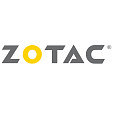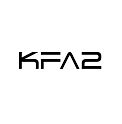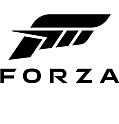 AMD Radeon RX Vega 8
AMD Radeon RX Vega 8
 Gainward GeForce GTS 450 GS
Gainward GeForce GTS 450 GS
Comparision AMD Radeon RX Vega 8 vs Gainward GeForce GTS 450 GS
Grade
Top specs and features
- Passmark score
- 3DMark Cloud Gate GPU benchmark score
- 3DMark Fire Strike Score
- 3DMark Fire Strike Graphics test score
- 3DMark 11 Performance GPU benchmark score
Passmark score
3DMark Cloud Gate GPU benchmark score
3DMark Fire Strike Score
3DMark Fire Strike Graphics test score
3DMark 11 Performance GPU benchmark score
Description
The AMD Radeon RX Vega 8 video card is based on the Vega architecture. Gainward GeForce GTS 450 GS on the Fermi architecture. The first has 4940 million transistors. The second is 1170 million. AMD Radeon RX Vega 8 has a transistor size of 14 nm versus 40.
The base clock speed of the first video card is 300 MHz versus 880 MHz for the second.
Let's move on to memory. AMD Radeon RX Vega 8 has There is no data GB. Gainward GeForce GTS 450 GS has There is no data GB installed. The bandwidth of the first video card is There is no data Gb/s versus 62.4 Gb/s of the second.
FLOPS of AMD Radeon RX Vega 8 is 1.11. At Gainward GeForce GTS 450 GS 0.65.
Goes to tests in benchmarks. In the Passmark benchmark, AMD Radeon RX Vega 8 scored 1746 points. And here is the second card 1289 points. In 3DMark, the first model scored 2347 points. Second 1500 points.
In terms of interfaces. The first video card is connected using There is no data. The second is PCIe 2.0 x16. Video card AMD Radeon RX Vega 8 has Directx version 12. Video card Gainward GeForce GTS 450 GS -- Directx version - 11.
Regarding cooling, AMD Radeon RX Vega 8 has 65W heat dissipation requirements versus 106W for Gainward GeForce GTS 450 GS.
Why AMD Radeon RX Vega 8 is better than Gainward GeForce GTS 450 GS
- Passmark score 1746 против 1289 , more on 35%
- 3DMark Cloud Gate GPU benchmark score 15269 против 12088 , more on 26%
- 3DMark Fire Strike Score 2154 против 1421 , more on 52%
- 3DMark Fire Strike Graphics test score 2347 против 1500 , more on 56%
- 3DMark 11 Performance GPU benchmark score 3556 против 1833 , more on 94%
- 3DMark Vantage Performance test score 10350 против 9477 , more on 9%
- FLOPS 1.11 TFLOPS против 0.65 TFLOPS, more on 71%
AMD Radeon RX Vega 8 vs Gainward GeForce GTS 450 GS: highlights


Performance
Memory
General information
Functions
Benchmark tests
FAQ
How does the AMD Radeon RX Vega 8 processor perform in benchmarks?
Passmark AMD Radeon RX Vega 8 scored 1746 points. The second video card scored 1289 points in Passmark.
What FLOPS do video cards have?
FLOPS AMD Radeon RX Vega 8 is 1.11 TFLOPS. But the second video card has FLOPS equal to 0.65 TFLOPS.
What power consumption?
AMD Radeon RX Vega 8 65 Watt. Gainward GeForce GTS 450 GS 106 Watt.
How fast are AMD Radeon RX Vega 8 and Gainward GeForce GTS 450 GS?
AMD Radeon RX Vega 8 operates at 300 MHz. In this case, the maximum frequency reaches 1100 MHz. The clock base frequency of Gainward GeForce GTS 450 GS reaches 880 MHz. In turbo mode it reaches There is no data MHz.
What kind of memory do graphics cards have?
AMD Radeon RX Vega 8 supports GDDR4. Installed There is no data GB of RAM. Throughput reaches There is no data GB/s. Gainward GeForce GTS 450 GS works with GDDR5. The second one has 1 GB of RAM installed. Its bandwidth is There is no data GB/s.
How many HDMI connectors do they have?
AMD Radeon RX Vega 8 has There is no data HDMI outputs. Gainward GeForce GTS 450 GS is equipped with There is no data HDMI outputs.
What power connectors are used?
AMD Radeon RX Vega 8 uses There is no data. Gainward GeForce GTS 450 GS is equipped with There is no data HDMI outputs.
What architecture are video cards based on?
AMD Radeon RX Vega 8 is built on Vega. Gainward GeForce GTS 450 GS uses the Fermi architecture.
What graphics processor is being used?
AMD Radeon RX Vega 8 is equipped with Vega Raven Ridge. Gainward GeForce GTS 450 GS is set to GF106.
How many PCIe lanes
The first graphics card has There is no data PCIe lanes. And the PCIe version is There is no data. Gainward GeForce GTS 450 GS There is no data PCIe lanes. PCIe version There is no data.
How many transistors?
AMD Radeon RX Vega 8 has 4940 million transistors. Gainward GeForce GTS 450 GS has 1170 million transistors








































